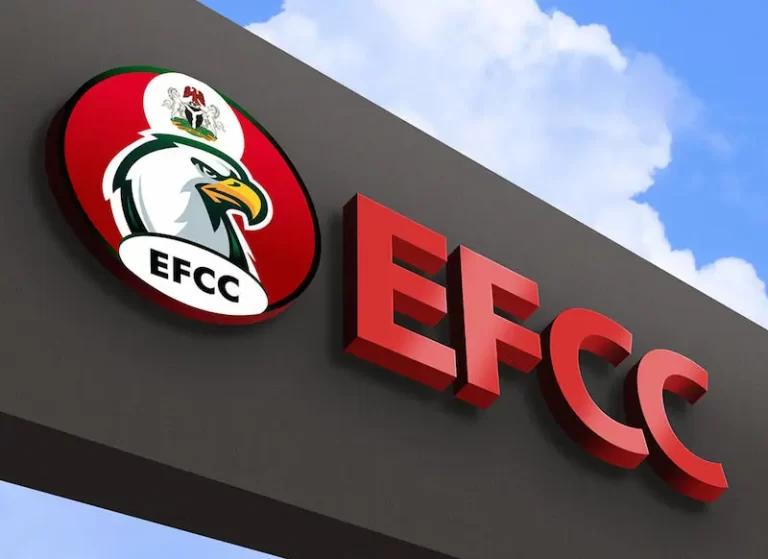The Economic and Financial Crimes Commission, EFCC, and associates in the banking industry have agreed to work together to deepen capacity and build strong collaboration against financial crimes.
The Chartered Institute of Bankers of Nigeria, CIBN, and chief executive officers of the body of banks met with the EFCC to examine various areas of collaboration in the fight against economic and financial crimes.
In a statement during the meeting in Abuja, President of CIBN, Dr. Ken Opara, said the collaboration of CIBN and the Body of Banks’ CEOs with EFCC emphasizes the commitment towards promoting ethics, professionalism, and transparency within the banking sector.
He added that all staff of banks now go through a mandatory Annual Ethics Certification Programme which is conducted by the institute to ensure ethics and professionalism is established in the banking sector.
According to him, the institute is working with the Body of Banks’ CEOs to institutionalize a collaborative capacity building program for the staff of EFCC to deepen their knowledge and competence in the area of banking and financial operations.
Opara noted that the program will also allow EFCC to share with bankers, insights on how to curb financial crimes, adding that it will help the anti-graft agency in achieving its objectives while promoting the growth of the economy.
Executive Chairman, EFCC, Mr. Ola Olukoyede said the fight against corruption is a patriotic duty that must not be left only to the commission, but a collective duty of all.
He also welcomed the proposed collaboration between the commission and banks which is aimed at improving skills and competencies of the staff of the Commission as well as bankers.
Similarly, the chairman, Body of Banks’ CEOs, Mr. Lamin Manjang, applauded Olukoyede’s leadership for the efforts of the institution in embracing professionalism whilst prioritizing humaneness in the conduct of its operations.
He noted the significant progress made in combating corruption, as evident in EFCC’s adherence to international conventions and protocols aimed at proactively deterring corrupt practices through effective policies and inclusive stakeholders’ participation.
“This remarkable accomplishment reflects the commission’s unwavering commitment to upholding justice and the rule of law in our society,” Manjang said.
